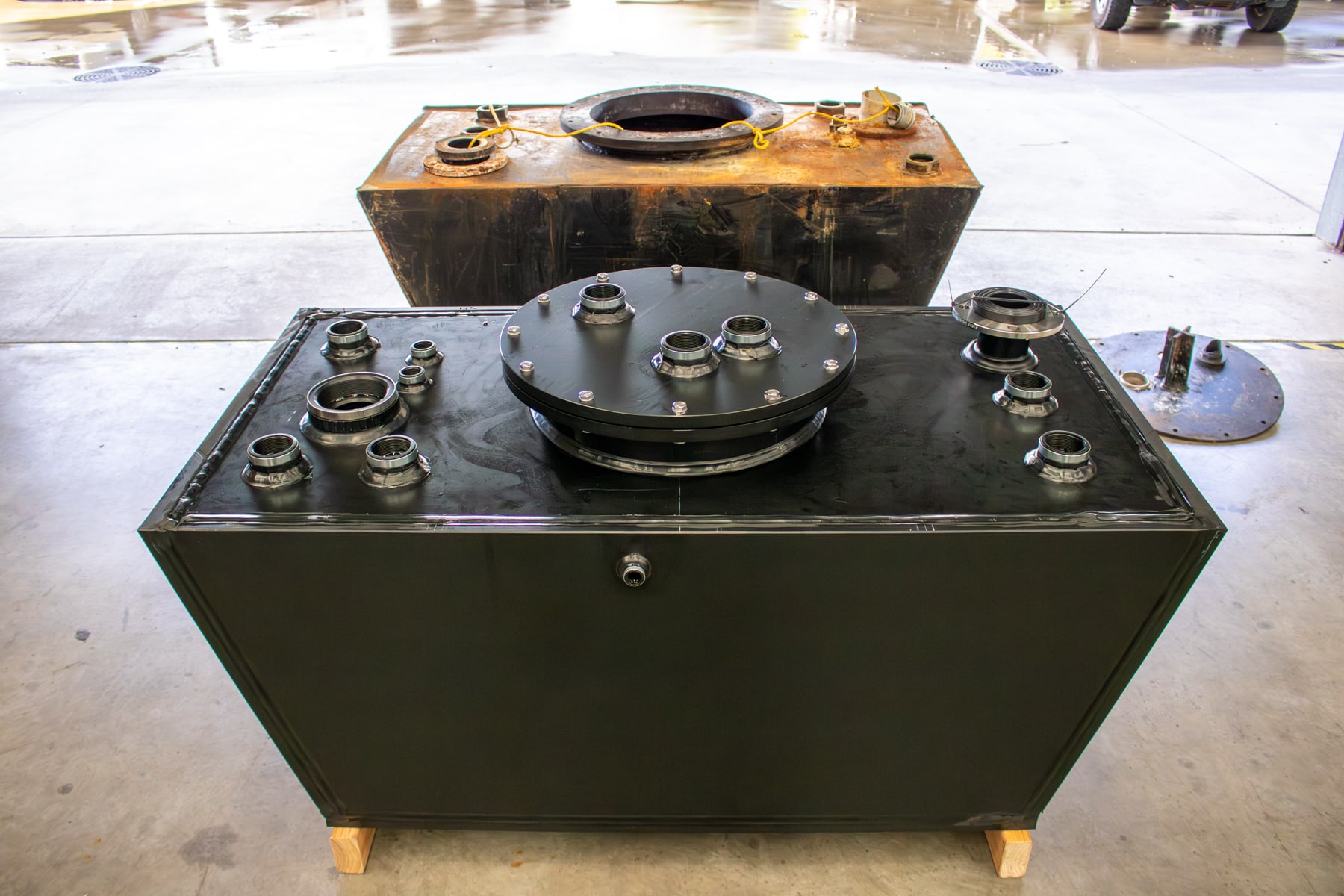
In August 2024, the iconic sail-training vessel STS Leeuwin II collided with the container ship Maersk Shekou while berthed at Fremantle Port. The vessel suffered catastrophic dismasting: the masts, spars, and rigging were severely damaged, though its hull remained watertight. Two crew members onboard were injured, and investigations by the Australian Transport Safety Bureau (ATSB), the Australian Maritime Safety Authority (AMSA), and Fremantle Ports were initiated.
As part of the vessel’s broader system upgrades and restoration, a local engineering firm engaged Fusion to design and supply a replacement sewage storage tank. The original tank, assessed during repair planning, was found degraded and unsuitable for the intended service life of the restored vessel.
Standards & Safety: In accordance with DVS 2205 standards, Fusion increased the tank wall thickness from 15 mm to 30 mm, ensuring improved rigidity, safety, and a projected service life of 25 years — all while achieving the required factor of safety.
Functional Requirements: The tank design incorporated an internal baffle to support the processing of sewage, multiple flange connections with stainless steel backing rings, and an access manhole for inspection and maintenance.
Outcome & Installation: The enhanced tank is slated for installation in STS Leeuwin II as part of its comprehensive restoration, contributing to a durable, compliant, and long-term solution for onboard sewage storage.
This replacement tank represents a critical component in restoring and upgrading STS Leeuwin II’s operational systems, ensuring the vessel can safely sail and serve its training mission for decades to come.
